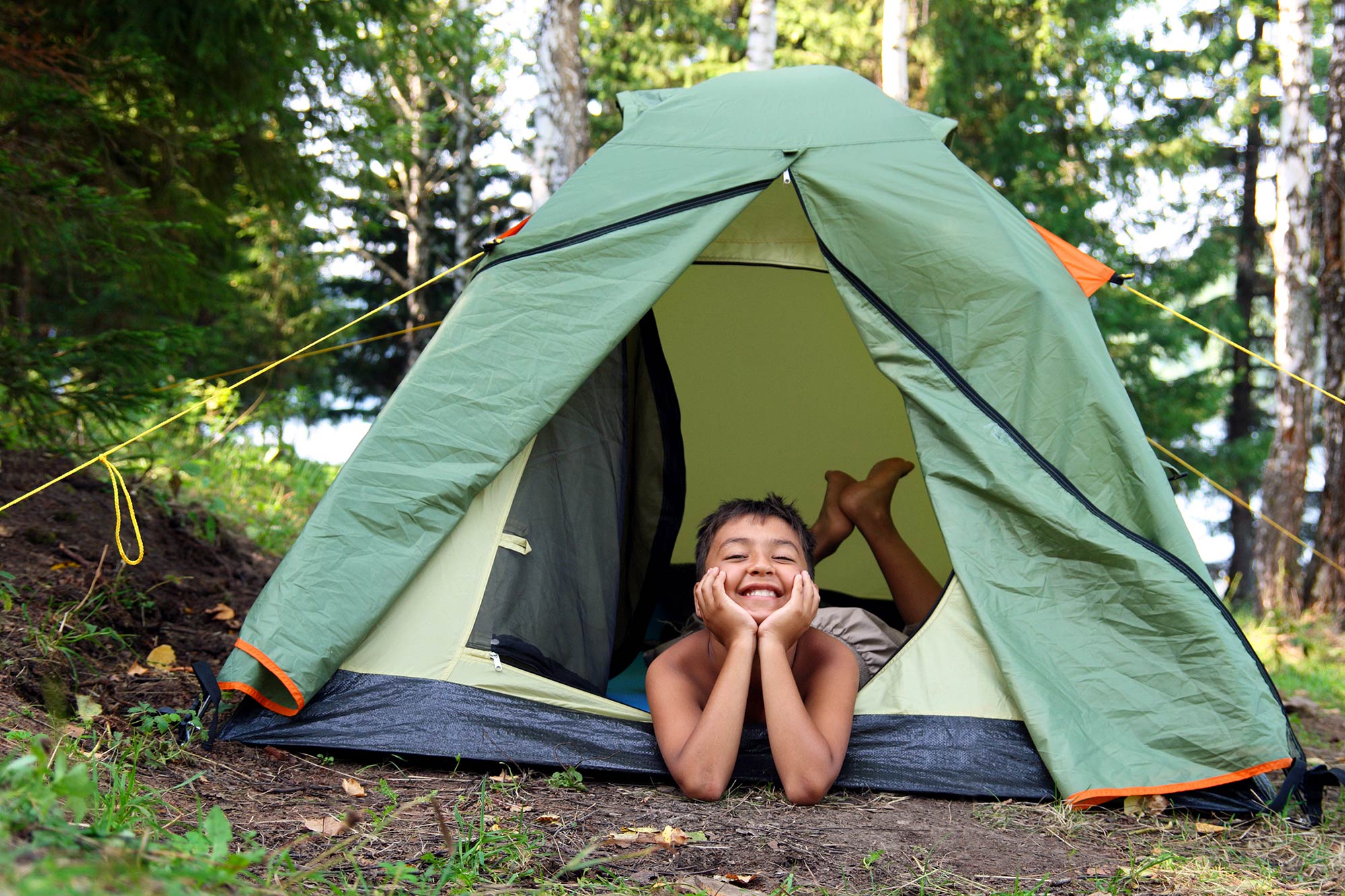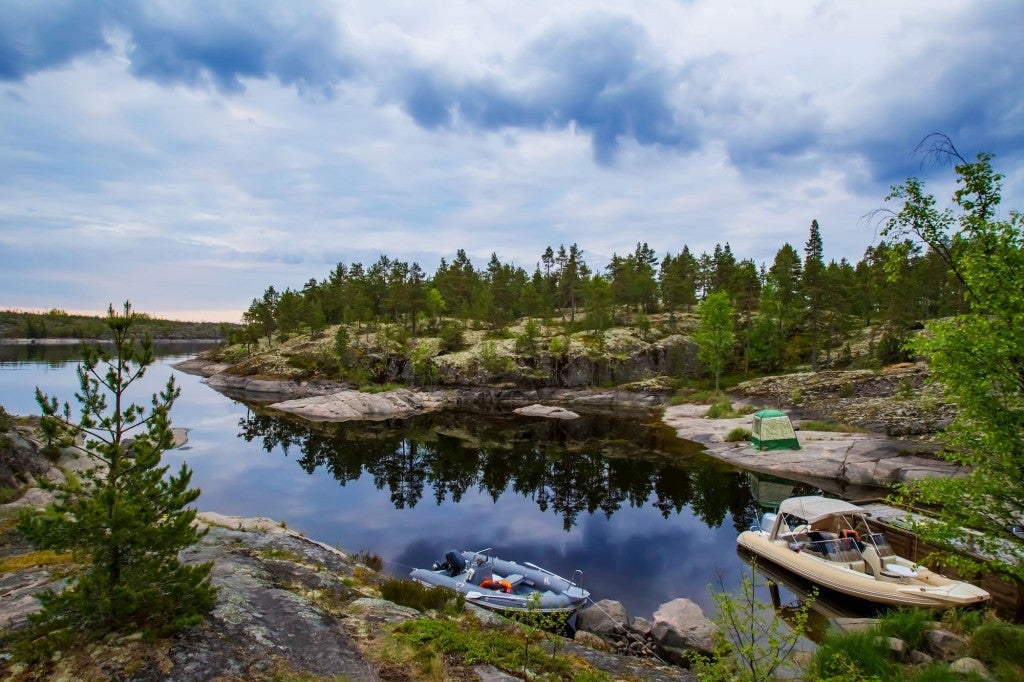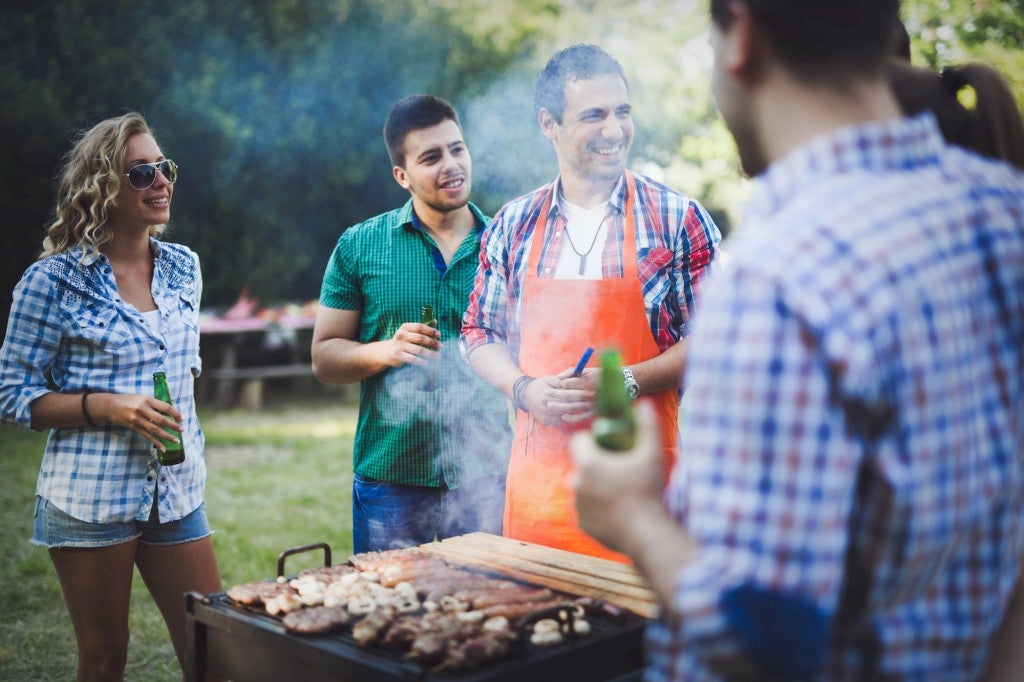Camping is one of the simplest and most cost-effective family activities. It’s a guaranteed way to build memories with your kids while fostering a love of nature and the outdoors.
But have you ever considered letting your kids camp on their own?
Now don’t worry—I’m not suggesting you send your child into the wilderness with a sandwich and a tent. But if you can start allowing (and encouraging) your kids to try some traditional camping activities on their own, you’ll see some pretty amazing results.
What My Son’s Solo Backyard Camping Taught Me
My son Jack is now 15 years old, and he and I just wrote a book called 101 Outdoor Adventures to Have Before You Grow Up. Jack definitely learned a lot by camping solo, and I think I learned even more. Here are my three biggest takeaways.
Lesson 1: My worries and fears should not translate to my child.
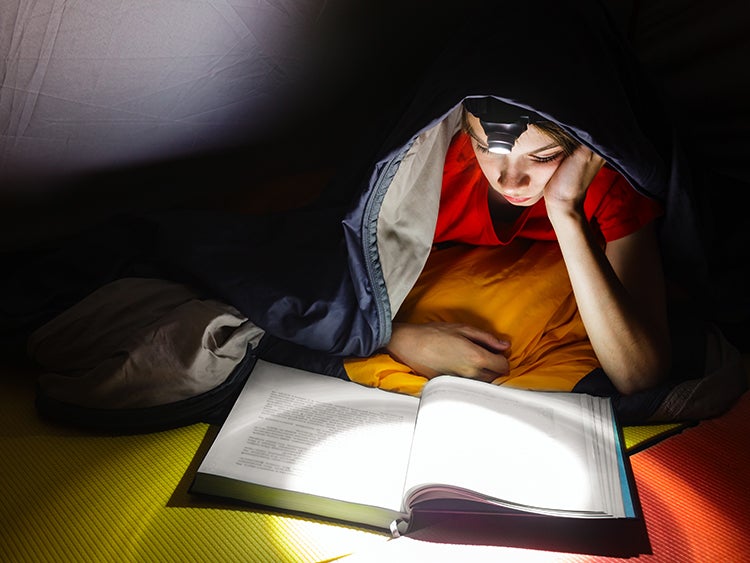
I’m a pretty outdoorsy person and I’ve been camping since I was a kid. But I’ll admit that I can be a wuss. Nighttime noises worry me, campfire stories often scare me, and I don’t love sleeping on hard ground. I’ll take the cot, thanks.
When Jack was about 5, we were doing a backyard campout. It was a rainy, thunderous night, but there was no way he was going inside. He was there for the long haul, whether I liked it or not!
A few years later, he started asking to tent camp in the backyard on his own—he didn’t mind that everyone else was inside. After he mastered backyard camping, he started asking to use a tent hammock. He’d zip himself up for the night and happily sleep alone until the next morning.
During each of these times, I initially hesitated. Along with regular mom guilt, I worried about leaving him on his own. But Jack will tell you that these are some of his greatest outdoor memories and accomplishments (so far) while growing up.
It was challenging for me to let go and not transfer my own worries or fears to Jack. I mostly figured it out—while also offering him extra blankets and flashlights—and I’m so glad I did. He loved the privilege of being on his own because it gave him a new sense of accomplishment and confidence that he wouldn’t have otherwise had.
Lesson 2: Kids need ways to establish their independence.
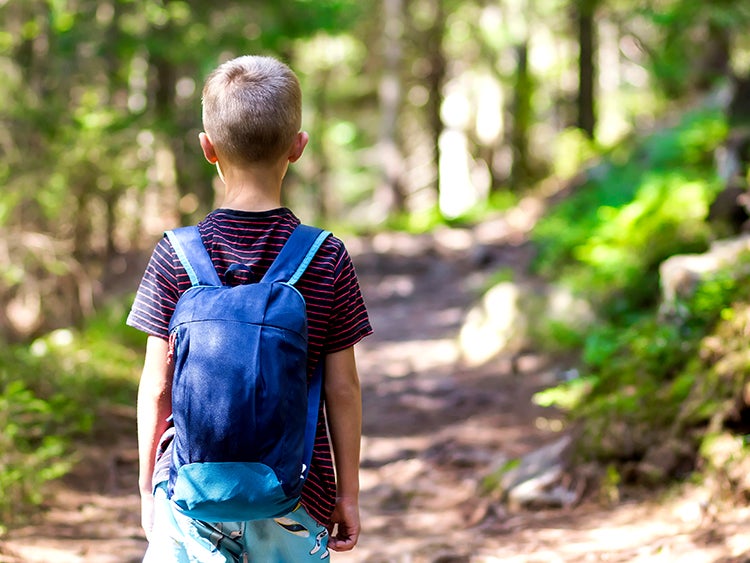
As parents, we often don’t realize how much we are doing for our kids. We give them shortcuts. We set things up so it’s harder for them to fail. We help a little more or longer than we should.
We do these things with good intentions, but it doesn’t help them grow as people or figure out how to do things on their own. I’ve been there with both Jack and his younger sister. Over the years, I’ve wanted to help a little too much; I have to check myself and give them the space they need and deserve.
If you can identify with this at all, use camping to give your child more autonomy. The next time you’re camping with kids, let them explore on their own. Give them a say in the daily activities. Let them plan things for the whole family to do. It’s okay to set rules and parameters. After all, it’s still our job as parents to prepare them for the world. They’ll appreciate taking charge, and it gives them some of that independence that so many kids crave.
Lesson 3: Camping packs in an incredible amount of life skills.
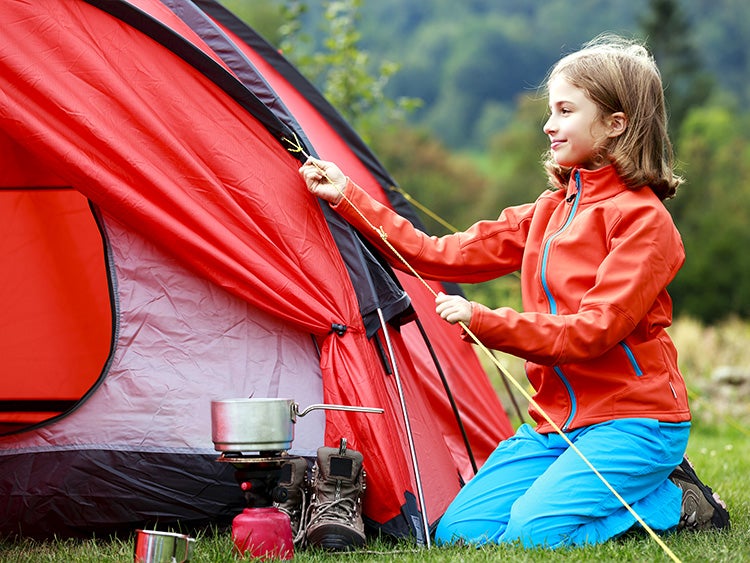
Camping isn’t just a fun way to help your children become more independent; it teaches them practical life skills. Here are a few useful skills that kids camping can help tackle:
- Pack your own bag
- Set up a tent
- Learn how to build a good fire
- Set up the camping area
- Learn how to identify (and avoid) poison ivy
- Establish good camping etiquette
These experiences are all opportunities for kids to learn. Setting up a tent can be hard! You have to follow directions and think like an engineer—both great skills that will apply time and time again. Some of the most important parts of camping are the small lessons, like cleaning up after yourself, not leaving food out for wild animals, and learning how to ID poisonous plants. When you teach your kids these concepts, they will use them for years to come.
It doesn’t matter whether you’re ready to let your kids go camping out in a tent like I did or try other activities on their own. Just know that you are doing them some good by letting them experiment with kids camping on their own. And with any luck, they’ll grow up to have a love of camping and nature to pass down to others.
The Dyrt is the only camping app with all of the public and private campgrounds, RV parks, and free camping locations in the United States. Download now for iOS and Android.Popular Articles:
Articles on The Dyrt Magazine may contain links to affiliate websites. The Dyrt receives an affiliate commission for any purchases made by using such links at no additional cost to you the consumer.

